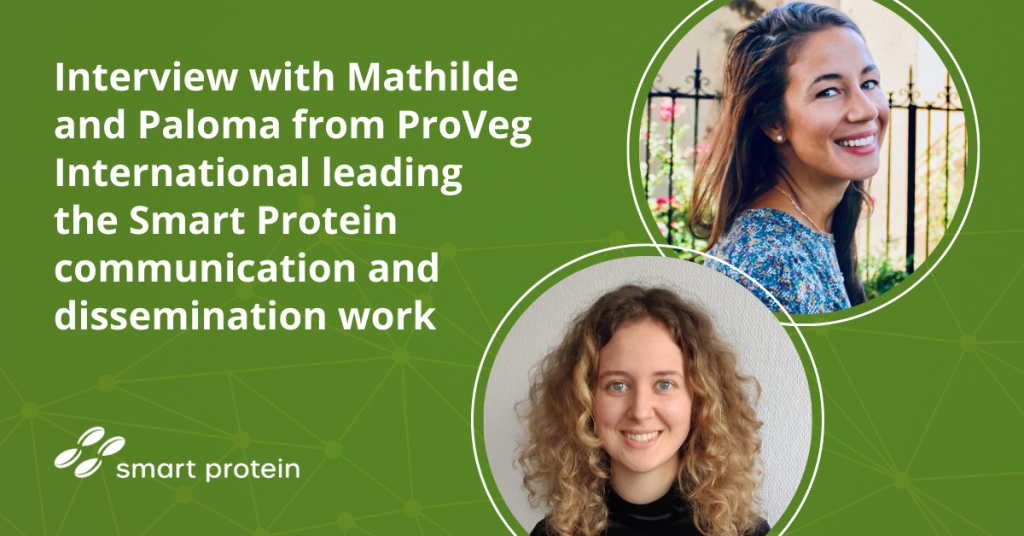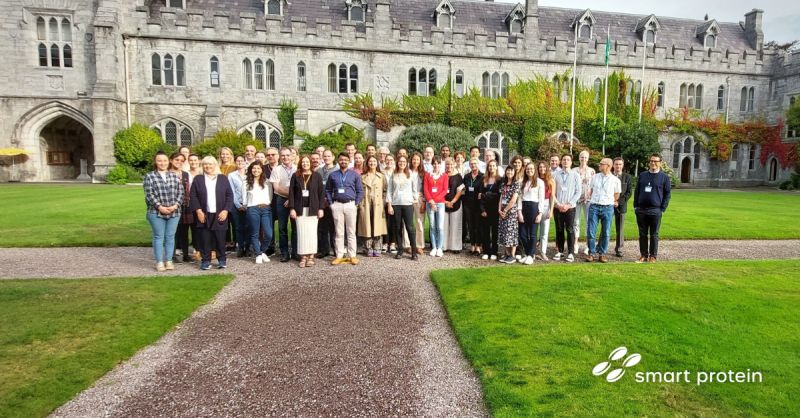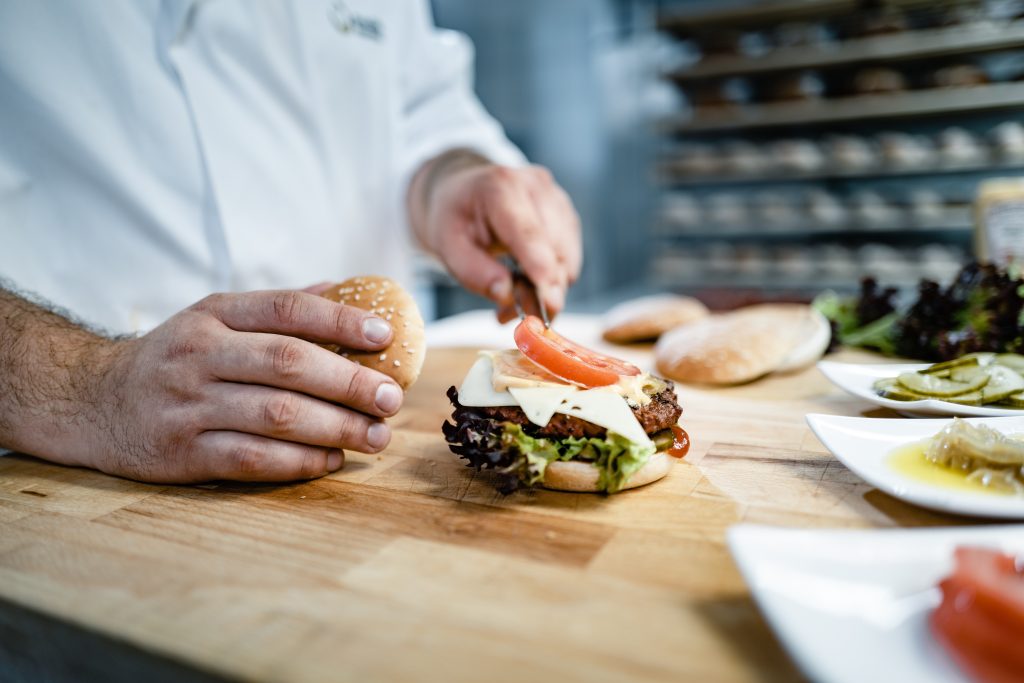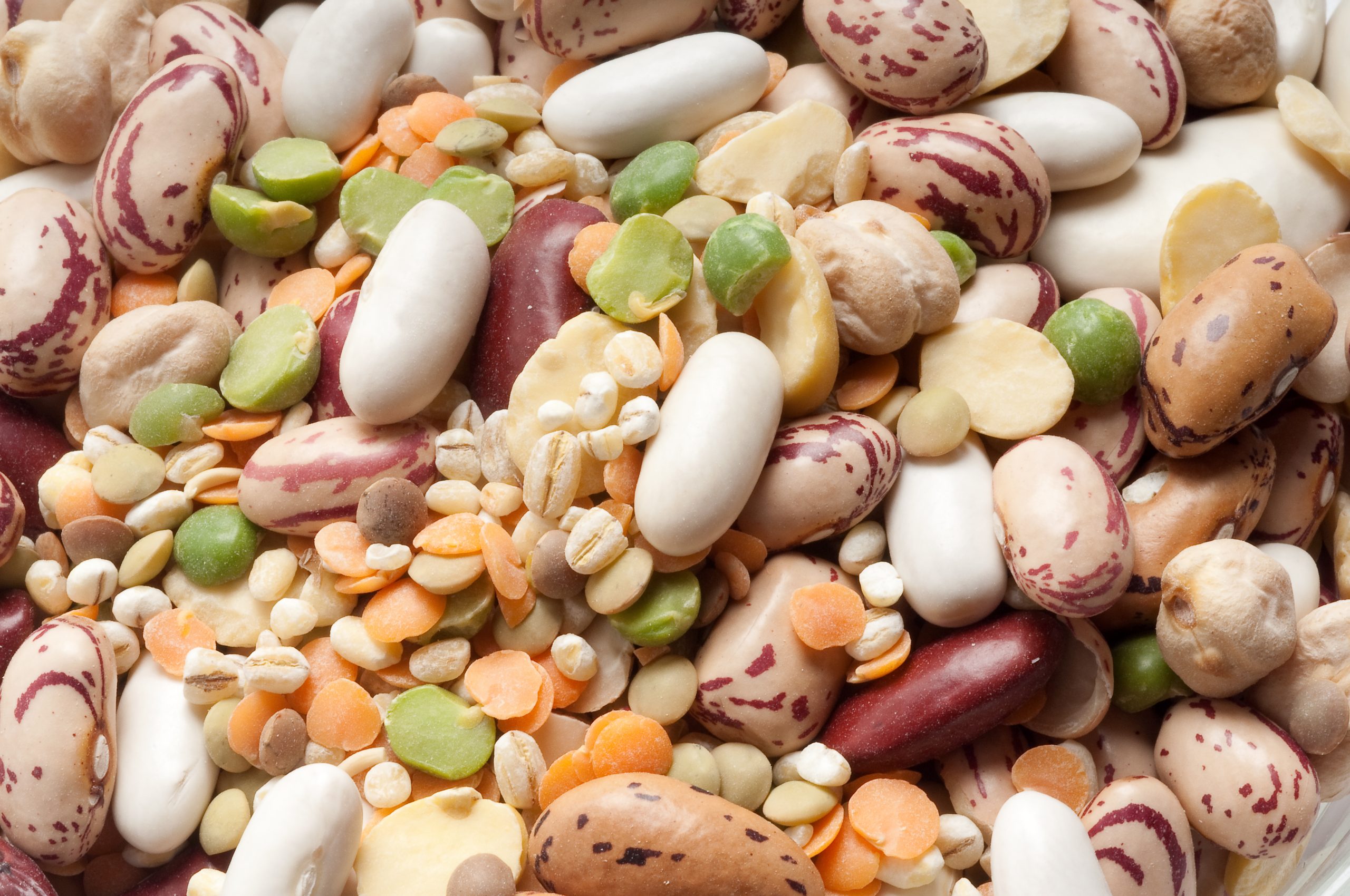Working with the Smart Protein Project for a brighter future
ProVeg is proud to be involved in a host of innovative projects taking place across the globe – the Smart Protein Project is one of them. Together with 32 partner institutions from 14 countries, we’re facilitating an important shift of the European food system, to offer increasingly sustainable, nutritious, and environmentally friendly protein sources.
But let’s hear more about the Smart Protein Project from two ProVeg colleagues working on the front lines. Over to Mathilde Alexandre and Paloma Nosten from our Corporate Engagement team!

What is ProVeg’s role within the Smart Protein project?
Paloma Nosten: Communication and dissemination! From the creation and maintenance of the website to social-media activities, newsletters, the organization of webinars, public relations activities, and the creation of the Smart Protein Stakeholder Advisory Board, ProVeg is leading the charge. Working closely with all partners, ProVeg acts as the voice of the project, making sure that Smart Protein news, updates, and results are widely shared.
Mathilde Alexandre: ProVeg also brings its expertise in market research on alternative proteins to the project. As part of this effort, ProVeg has released two impactful reports: 1) Plant-based Food in Europe: how big is the market, which explores the European plant-based sector, and; 2) What consumers want: a survey on European consumer attitudes towards plant-based foods, with a focus on flexitarians.
Why did ProVeg decide to join the Smart Protein project?
Paloma: The Project Lead, Prof. Emanuele Zannini from University College Cork, often repeats the mantra ‘Smart Protein for a changing world,’ which aligns with ProVeg’s values and approach toward food system transformation: we need to offer individual alternative options to animal products.
What we eat has a significant impact on our health and the environment. In Europe, our food tends to be too rich in fat, sugar, and salt, and our diets are unbalanced and skewed towards animal protein. In addition, our food is not diverse enough – 75% of our food comes from just 12 plants and five animal species. Also of great relevance, is the fact that a third of the food we produce is wasted. Last but not least, our natural resources are under increasing pressure – sources of freshwater are running dry, existing water resources are becoming increasingly polluted, and a third of the planet’s soil is degraded, all of which is threatening the earth’s biodiversity. Climate change and a lack of climate-resilient crops only intensify these problems.
Mathilde: The aim of the Smart Protein project is to develop alternative-protein ingredients and products for human consumption that have a positive impact on the bioeconomy, the environment, biodiversity, nutrition, food security, and consumer trust and acceptance. The project’s objectives are in complete alignment with ProVeg’s vision of a world where everyone chooses delicious food that is good for all humans, animals, and our planet. As such, it makes complete sense for us to amplify the reach and awareness of this highly innovative EU-funded project.
What are some of the Smart Protein Project’s objectives?
- To understand the suitability, profitability and potential yields of legumes across Europe.
- To develop protein isolates and concentrates that are not currently available on the market.
- To produce fungal biomass and derived protein fractions from wheat bran, pasta residues, bread crusts, and spent yeast and malt rootlets.
- To identify the unique characteristics of the generated proteins.
- To validate and pave the way for the subsequent commercialisation of target food products.

More generally, how will this project benefit Europe and its citizens?
Paloma: Although we are in the early stages of the alternative protein sector, it is one of the fastest-expanding sectors in Europe with immense potential for further growth due to a number of factors. For one, we increasingly see investment funds diverted toward more plant-based innovation, which should further accelerate its growth in the coming years. Further, more and more people are increasingly aware of and motivated by the health and environmental benefits of a plant-based diet, and are acting on it, with the number of flexitarians increasing to 30% of Europeans.
Additionally, the impact of our food system on the climate is a central consideration in the Smart Protein project and drives the partners’ work toward shifting agricultural practices and increasing the production and consumption of plant-based proteins.
Mathilde: The Smart Protein project truly benefits all partners, as well as all European citizens. ProVeg’s involvement helps to increase the scale of research by analyzing consumer and market trends in more than 10 European countries, thus providing data on previously unexplored areas. This data is valuable for policymakers and industry, among others, allowing them to make informed decisions that contribute toward more sustainable food production. Doing so thus also benefits European citizens by supporting the production of a wider variety of more affordable, nutritious, and sustainable plant-based products within Europe. Ultimately, the Smart Protein project aims to provide high-quality food options for European citizens.

What are the main challenges you’ve faced with the project?
Paloma: It is never easy to change and transform – and we know that a fundamental transformation of the ways we produce and consume food in Europe is urgently needed – the EU’s food system is far from sustainable! A major hurdle is the current EU legislation, which does not adequately promote or even support consumers’ shift towards more plant-trich diets or the development and promotion of plant-based alternatives that could help to facilitate such a transition.
Mathilde: Which is why ProVeg is also contributing to policy outreach as part of its involvement in the project. We recently published a policy brief that provides concrete policy tools for promoting alternative proteins in the EU.
What results from the project are you most excited about?
Mathilde: It’s encouraging to see that research done by the Smart Protein project highlights the fundamental shift in consumer behavior towards more sustainable diets. Our consumer research from 2021 reveals that an encouraging 30% of Europeans consider themselves flexitarian, thus indicating a clear intention to reduce their consumption of animal-based products. A more recent round of pan-EU research conducted this year, which tracks changes over the past two years, indicates this shift continues to grow!

A smart future
Mathilde and Paloma’s insights into the Smart Protein Project shed light on a remarkable initiative poised to revolutionize the European food system. This collaborative effort, driven by the pursuit of sustainability, nutrition, and eco-friendly protein sources, exemplifies the need – and increasing demand – for change in our food habits.
With ProVeg’s pivotal role in communication, dissemination, market research, and policy outreach, the project aims to address the challenges posed by imbalanced diets, food waste, and environmental degradation. By promoting plant-based alternatives and aligning with ProVeg’s vision of a more sustainable world, the Smart Protein Project benefits European citizens at large.
The shift towards more sustainable diets, as revealed by the project’s research, highlights a promising future where consumers increasingly embrace plant-based choices, offering hope for a healthier planet.



